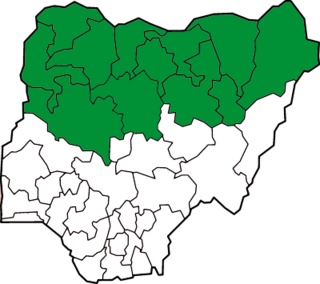| 2013 Iraq Christmas Day bombings | |
|---|---|
| Location | Baghdad, Iraq |
| Date | 25 December 2013 |
| Target | Christians |
Attack type | Bombings |
| Deaths | 38 |
Non-fatal injuries | 70 |
On 25 December 2013, three separate bombings in Baghdad, Iraq targeted Christians, killing 38 people and wounding 70 others.

Baghdad is the capital of Iraq. The population of Baghdad, as of 2016, is approximately 8,765,000, making it the largest city in Iraq, the second largest city in the Arab world, and the second largest city in Western Asia.

Iraq, officially the Republic of Iraq, is a country in Western Asia, bordered by Turkey to the north, Iran to the east, Kuwait to the southeast, Saudi Arabia to the south, Jordan to the southwest and Syria to the west. The capital, and largest city, is Baghdad. Iraq is home to diverse ethnic groups including Arabs, Kurds, Chaldeans, Assyrians, Turkmen, Shabakis, Yazidis, Armenians, Mandeans, Circassians and Kawliya. Around 95% of the country's 37 million citizens are Muslims, with Christianity, Yarsan, Yezidism and Mandeanism also present. The official languages of Iraq are Arabic and Kurdish.

The Christians of Iraq are considered to be one of the oldest continuous Christian communities in the world. The vast majority of Iraqi Christians are indigenous Eastern Aramaic-speaking ethnic Iraqi-Assyrians. Non-Syriac Iraqi Christians are largely Arab Christians and Armenians, and a very small minority of Kurdish and Iraqi Turkmen Christians. Syriac Christianity was first established in Mesopotamia, and the Church of the East and its successor churches were established in central-southern Iraq. Syriac Christianity and would eventually spread to becoming one of the most popular Christian churches in the Middle East and Fertile Crescent Region, and would spread as far as India and China. Iraq plays a rich and vital contribution to Christian history, and after Palestine/Israel, Iraq has the most biblical history than any other country in the world. The patriarch Abraham was from Uruk, in southern Iraq, modern day Nasiriya, and Rebecca was from northwest Iraq. Additionally, Jacob’s sons, the 12 tribes of Israel, were all born in Iraq, and Daniel lived in Iraq most of his life. The prophet Ezekial was from southern Iraq and his shrine is located there. Shrines of Prophet Jonah, Saint George, and various other biblical prophets and saints are attributed to have been originally from Iraq. Adam and Eve are also widely thought to have hailed from Iraq, as the biblical Garden of Eden is largely attributed to have been located in southern Iraq. The number of Christians of Iraq is said to be at around 500,000-1.5 million, according to the EU Research Services on minorities in Iraq, although numbers vary from source to source due to the last Iraqi census having taken place more than 30 years ago. A census is scheduled to take place in 2020 in which the numbers of Christians in Iraq will be clarified.





